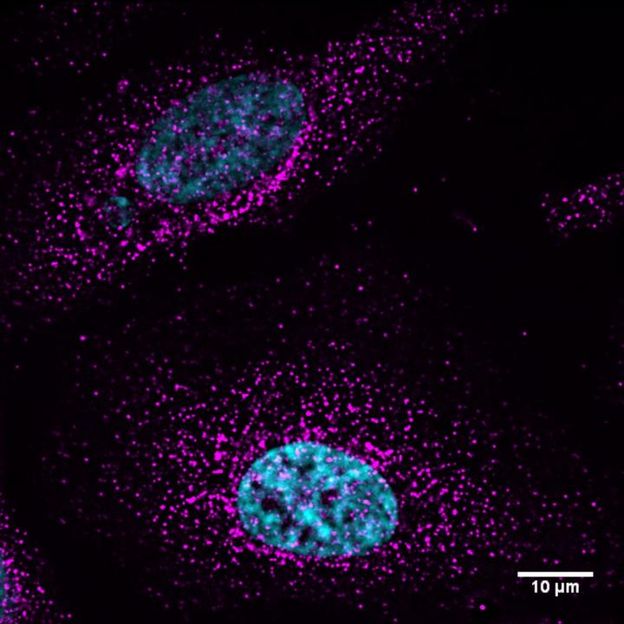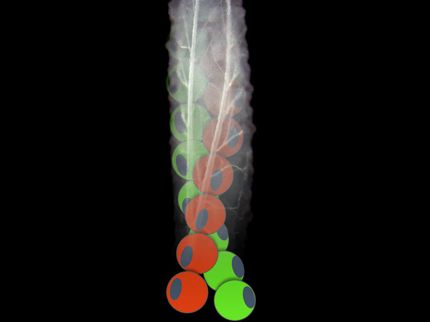A new role for an old protein in breast cancer
Scientists led by Dr Chris Toseland of the University's School of Biosciences studied a protein called myosin VI, a molecular motor which acts as a courier to transport other proteins within our cells. Myosin VI is highly present in many cancers yet the role is unclear. Dr Toseland's study to understand the role of Myosin VI found it was critical in the production of specific genes which are linked to cell growth and tumour development. This is particularly relevant to breast, ovarian, prostate and colon cancer.

Myosin VI in human cells.
University of Kent
Approximately 70% of all breast cancer is oestrogen sensitive and the results of this study may identify new treatment targets for patients with the disease. As a result of his findings, Dr Toseland is now inviting patients in the NHS to take part in further research. This will investigate how myosins are targeted to specific genes, and determine how they are themselves regulated, enhancing scientists understanding of their function during breast cancer.
Understanding the role of Myosin VI in the disease may also highlight further diagnostic clues for the disease. This would potentially allow for a better choice of treatment to be administered.
Original publication
Other news from the department science

Get the analytics and lab tech industry in your inbox
By submitting this form you agree that LUMITOS AG will send you the newsletter(s) selected above by email. Your data will not be passed on to third parties. Your data will be stored and processed in accordance with our data protection regulations. LUMITOS may contact you by email for the purpose of advertising or market and opinion surveys. You can revoke your consent at any time without giving reasons to LUMITOS AG, Ernst-Augustin-Str. 2, 12489 Berlin, Germany or by e-mail at revoke@lumitos.com with effect for the future. In addition, each email contains a link to unsubscribe from the corresponding newsletter.




















































